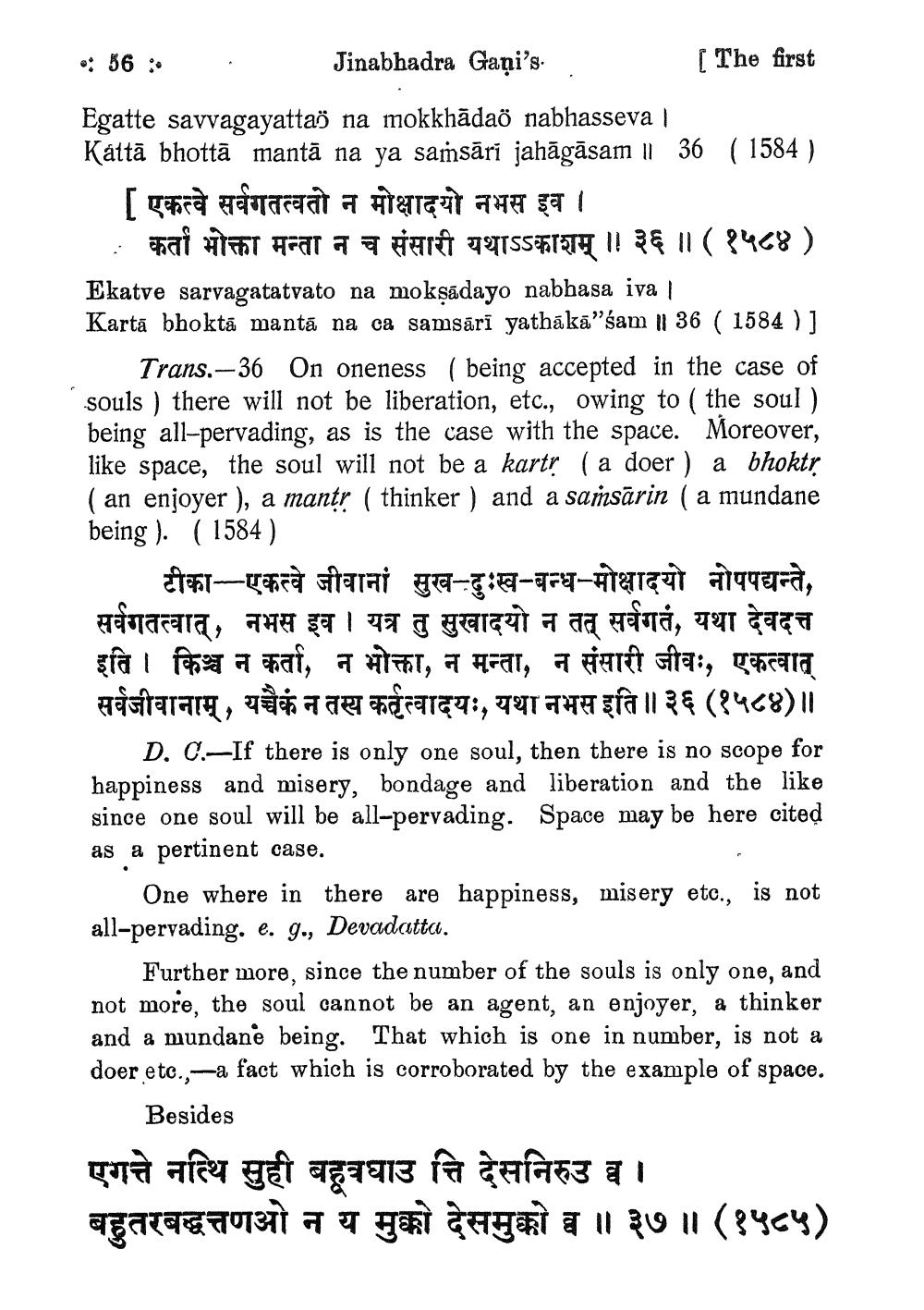________________
•: 56:
Jinabhadra Gani's
[ The first
Egatte savvagayattaö na mokkhadaö nabhasseva | Kättā bhottā mantā na ya samsārī jahāgāsam ॥ 36 ( 1584 )
[ एकत्वे सर्वगतत्वतो न मोक्षादयो नभस इव ।
कर्ता भोक्ता मन्ता न च संसारी यथाऽऽकाशम् || ३६ || ( १५८४ )
Ekatve sarvagatatvato na mokṣadayo nabhasa iva | Karta bhokta_manta na ca samsarī yathāka” Śam || 36 ( 1584 ) ]
Trans. – 36 On oneness ( being accepted in the case of souls ) there will not be liberation, etc., owing to ( the soul ) being all-pervading, as is the case with the space. Moreover, like space, the soul will not be a kartr ( a doer ) a bhoktr ( an enjoyer ), a mantr ( thinker) and a sarsārin ( a mundane being ). ( 1584 )
7
टीका - एकत्वे जीवानां सुख-दुःख-बन्ध - मोक्षादयो नोपपद्यन्ते, सर्वगतत्वात् नभस इव । यत्र तु सुखादयो न तत् सर्वगतं यथा देवदत्त इति । किञ्च न कर्ता, न भोक्ता, न मन्ता, न संसारी जीवः, एकत्वात् सर्वजीवानाम्, यच्चैकं न तस्य कर्तृत्वादयः, यथा नभस इति ।। ३६ (१५८४) ।
D. C.—If there is only one soul, then there is no scope for happiness and misery, bondage and liberation and the like since one soul will be all-pervading. Space may be here cited as a pertinent case.
One where in there are happiness, misery etc., is not all-pervading. e. g., Devadatta.
Further more, since the number of the souls is only one, and not more, the soul cannot be an agent, an enjoyer, a thinker and a mundane being. That which is one in number, is not a doer etc., a fact which is corroborated by the example of space.
Besides
एगत्ते नत्थि सुही बहूवघाउ त्ति देसनिरुउ व । बहुतरबद्धत्तणओ न य मुक्का देसमुको व्व ॥ ३७ ॥ (१५८५)




